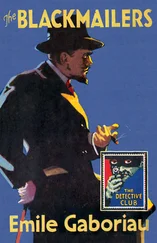Miernik is a sedentary man whose only exercise is walking. He appears to be of studious habit, and he has told friends that he is writing a social and political history of a tropical country, which he refuses to identify on grounds of scholarly discretion. It is believed that the country in question is either Sudan or Ethiopia. (This judgment is based on an examination of books that he has removed from various libraries.)
Physical description: 5 feet 9 inches, 200 pounds. Black hair, brown eyes. Wears eyeglasses at all times. Three-inch surgical scar on inner right forearm (no explanation). Heavy beard but cleanshaven. Clumps of hair grow from subject’s ears. Very strong body odor.
Idiosyncrasies: Fastidious personal habits. Does not smoke. Drinks moderately as a usual thing, but has been known to become drunk. When intoxicated, undergoes personality change, becoming garrulous and physically very active (dances, challenges companions to arm-wrestling contests, etc.). No known sexual abnormalities. No known liaison with any female.
4. REPORT BY PAUL CHRISTOPHER, AN AMERICAN UNDER DEEP COVER IN GENEVA, TO A U.S. INTELLIGENCE SERVICE.
Tadeusz Miernik phoned me early this morning (19 May) to ask that I meet him in the Parc Mon Repos at 11:30 A.M. He explained that he wished to talk to me alone before we joined Nigel Collins, Léon Brochard, Kalash el Khatar, and Hassan Khan for our usual Friday lunch. Miernik sounded over the phone even more shaken than he usually does. (I have mentioned in earlier reports that his normal tone of voice is one of acute distress. I continue to wonder if he sounds like that in Polish, as well as in English, French, and German.)
I found Miernik standing by the edge of the lake with the usual bag of stale bread in his hand. He was feeding the swans. All three buttons of his coat were carefully fastened, and he wore the look of a man who is phrasing his last will and testament. Nothing unusual there: he always looks like that.
Miernik has a way of beginning conversations with a non sequitur, if you know what I mean. “Only a month ago,” he said, “one of these beautiful swans killed a child with a blow of its beak. You saw the newspapers? The child was feeding it. It fractured the child’s skull. Can you tell, by looking at the swans, which is the murderer?” He scattered the last of his crusts on the water and turned his big face to me while he wiped his hands with a handkerchief. “No,” I said. “Can you pick out the guilty swan?” Miernik smiled (a movement of the muscles that always suggests the awakening of Boris Karloff in Dr. F.’s laboratory) and said, “Perhaps the swans know, but they will not talk.” (I give you this extraneous detail so that you will perhaps appreciate the oracular quality of Miernik’s conversation: layers within layers, sorrows within sorrows.)
We walked together along the lakeside. It was a sunny day. The park was full of pretty girls and other people. We could see Mont Blanc and the other high mountains, covered with snow. There were sailboats on the water. Miernik trudged through the crowd with his hands clasped in the small of his back. I have noticed before that scenes of beauty and happiness seem to fill him with melancholy. His eyes moved over the girls, over the children, over the old people. He wore a smile like that of an actor who has renounced the woman he loves because he knows that he is going to die in battle. “All this is not for me!” Miernik seems to sigh. But he adores observing the middle class in its leisure. “These people have the illusion that happiness is a right that cannot be taken away,” he said.
All the benches were occupied by noontime sunbathers, so Miernik led me to an empty place on one of the lawns. I leaned against a tree, waiting for him to say whatever it was that he had rehearsed. (I don’t mean to be flippant; his English is fluent, but studied.) Miernik turned his back to me and looked at the lake. When, at length, he turned around, he was again wearing his doomed smile. “There is something I do not want to discuss at lunch,” he said. I waited. “I wish what I am going to say to remain absolutely between you and me,” he said.
“All right.”
“My contract at WRO expires at the end of next month.”
“I know. You told me.”
“I have learned that it may not be renewed.”
“Is that important? It’s a dull job.”
“Important to me. You are an American. Perhaps you won’t understand what I am going to tell you.
“I’ll do my best.”
“It will not be renewed because the ambassador of my country has demanded that it not be renewed.”
“Demanded? He can’t tell WRO what to do.”
“He can tell them that they will lose the goodwill of my country if they do not do as he asks. My well-being is a small thing to WRO. The Organization survives by avoiding trouble. If I am trouble, it will avoid me.”
“How do you know what the Polish ambassador has demanded?”
“I know,” Miernik said.
“All right. Then why should the ambassador care one way or the other about your contract?”
“He does not. The ambassador is a government servant. Perhaps he guesses the reasons behind his instructions. Unless he is very stupid, he guesses.
“Tell me the reason.”
“Warsaw, someone in Warsaw, wants their hands upon me. Or perhaps someone farther east wants that.”
“Miernik!” I put disbelief in my voice, not to encourage him to tell his story, because he was obviously going to do that anyway. I meant to shake his performance, if that’s what it was.
“You scoff,” Miernik said. “They wish to arrest me, to question me, to imprison me. Perhaps more than that.”
“What on earth for?”
Miernik went on as if I hadn’t spoken: he had hit the rhythm of his role. “Arrest, question, imprison, ” he said. “You cannot possibly hear in those words the… echoes that a Pole hears.”
“Probably not. But why you? Do you live a secret life you haven’t told me about?”
Miernik grimaced. “A joke to an American. Something else to a secret policeman. Knowing you is enough to convince them that I work for American intelligence.”
(Don’t be startled by this remark. He meant to joke. Maybe he does think that I work for you-it’s probable, even, that he thinks so. But he wasn’t provoking me here. His tone was: That’s how ridiculous they are. He was keeping up the appearance that he does not suspect me by assigning the suspicion to the Polish secret police, who are known idiots.)
“But if you don’t work for the Americans, and I assume you don’t, then why are you worried?”
“To them, innocence is an illusion. They don’t like my nose. That’s enough.”
(Miernik has an unlovable nose: meaty, red, with a tendency to run.)
“If all this is true, then you have a problem,” I said.
“You don’t think that it’s true?”
“Why shouldn’t I? But is Poland really run by lunatics who’d lock you up for no reason at all?”
“You can’t quite conceive of that, can you?”
“I’ve never been to Poland.”
Miernik turned his back again. He blew his nose and cleared his throat into his handkerchief. This is one of his mannerisms when he is under stress.
“My dear friend,” he said, “I do not think that I can go back to Poland.”
“Then don’t go. Ask for asylum here. The Swiss will fix you up. They’ve done it in more doubtful cases than yours.
“I must go back.”
“You just said that you couldn’t.”
“Poland is my country.”
“Which wants to put you in jail for no reason.
“Perhaps not. Once it was suggested to me that I could be useful, in a patriotic way. When I was at the university. Perhaps they want to frighten me into something like that.”
Читать дальше












